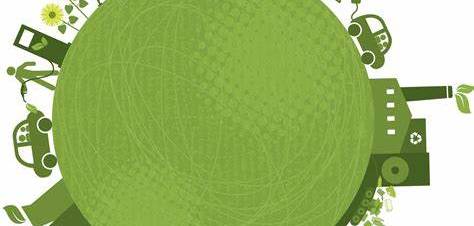
Today all scientists, naturalists, all NGOs who act to save our planet, the UN (the United Nations), the IPCC (Group of Intergovernmental Experts on Climate Change), agree that all the lights are red .
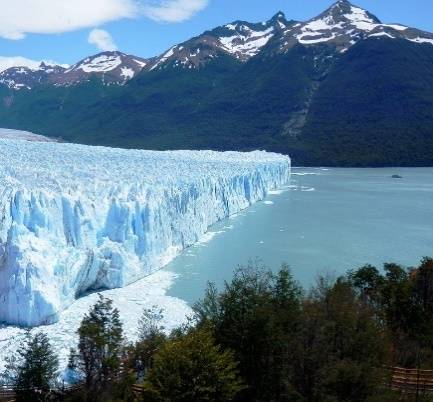
Climate change unfortunately continues its course.
June 20, 2019: The mercury rose to 38 ° C in Verkhoyansk. A record for this small town in eastern Siberia, better known for its cold records. Glaciers are melting, bringing with them an increase in ocean levels.

In recent years, the gigantic fires that have ravaged our forests have overwhelmed us with emotion. The flora and fauna are literally destroyed, burned, polluted.
Our oceans invaded by plastic are heating up, causing, every day more, the dramatic disappearance of a growing number of animal and plant species.
How can we accept such a massacre? Beyond the simple emotion, is there nothing to do? Are we condemned to endure the irremediable without being able to act?
No. Of course not. No way. That is why, all over the world, we are seeing groups of activists of all stripes. Associations, organizations, foundations, whatever their designations. They all have in common that they are made up of responsible citizens, sad and disgusted to witness the way in which man martyrs our Earth. They are determined to reverse the process.
Of course, we must forget the continual flow of bad news that can sometimes erode our good will. We are told that everything is wrong, that it is too late, that the damage is done. It is true that many situations are desperate. It is true that a great deal of damage has been done. But it is not too late. There is still hope. Lots of hope. The hope of seeing the inhabitants of our planet, lovers of our nature, concerned about its biodiversity, worried about the well-being of its children and of the generations to come, unite and pool their determinations in the battle for our survival .
Did you know that protecting the environment is the number one concern of many citizens? The mobilizations during the demonstrations for the climate show to what extent the planet is a current concern. Moreover, many of our fellow citizens align their words and their actions in everyday life.
Our individual actions can become collective, they make us think and realize that all together we are capable of beautiful things.
Here is a set of simple actions to reduce our ecological footprint that each of us can put into practice on a daily basis:
HEATING AND AIR CONDITIONING
Slightly lower the temperature on your thermostat to save energy. By lowering it by a few degrees for a few hours, in addition to reducing our heating bill, we will help reduce energy waste. Lowering the temperature of our fireplace by 1 ° C can save us up to 7% of energy. It doesn't cost us anything to put on an extra sweater or jacket.
Favor a heating method based on renewable energy , such as wood, solar, gas (the least polluting of fossil fuels).
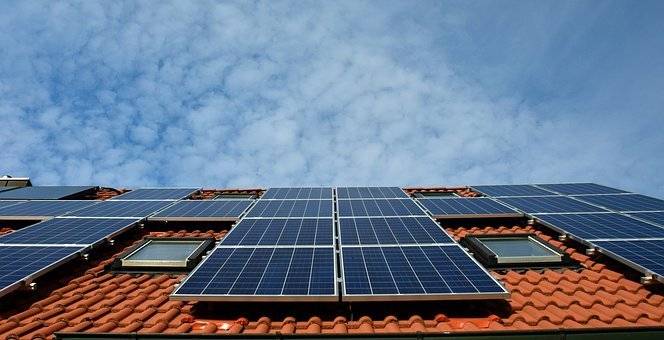
Choosing a green electricity supplier , rely on the ranking established on guide-electricite-verte.fr by Greenpeace, which has identified three ideal suppliers (Energie d'Ici, Enercoop, Ilek).
We must respect the target of 1.5 ° C maximum temperature rise, discussed at COP21. 70% of the energy produced in the world should be renewable by 2050.
Place reflective panels behind our radiators , so that they better reflect heat.
Close our shutters earlier in winter and at night but also during the day in summer , we save energy in heating and keep your interior cool.
Avoid air conditioning as much as possible . During high temperatures, hanging a damp sheet on our windows allows us to cool the interior of a room. The passage of heat will create a refreshing natural evaporation.
Insulate your home , there are all kinds of renovation aids that save us money on your heating budget.
LIGHTING OF OUR INTERIORS
12% of electricity consumption (excluding heating, hot water and cooking) is devoted to lighting according to ADEME.
Systematically turn off the light when leaving a room . We don't always think about it.
Make the most of natural light , let's favor light walls that reflect light when we paint our walls.
Ban over-lighting , prefer direct lighting, adapt the light sources to our uses (spotlight, desk lamp, bedside lamp, etc.)
Adapt the power of the lamps to our needs . In a light-colored room, a 100 W bulb is rarely warranted.
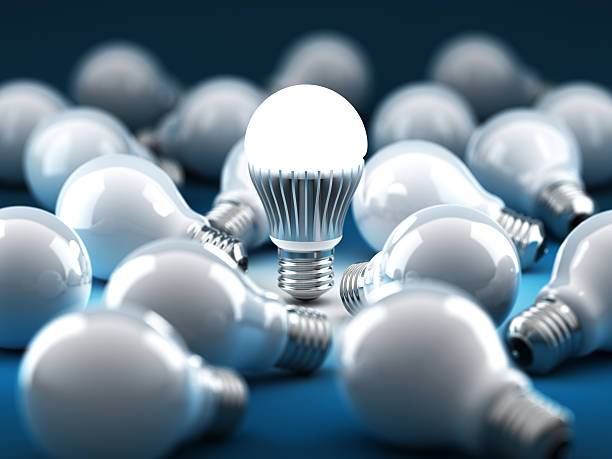
Install LED bulbs . Today it is the most economical, the most ecological and the healthiest solution. They are indeed less energy-intensive, do not contain mercury (unlike low-consumption bulbs, which are difficult to recycle), light up instantly and neutralize the risk of burns.
Regularly dust off your lamps , lights and lampshades and choose them in light tones.
REDUCE OUR DIGITAL POLLUTION
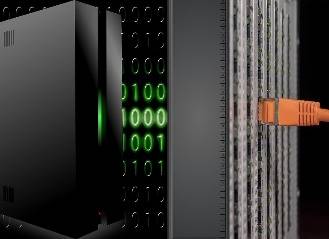
The energy intensity of the digital industry is increasing on average by 4% per year. It has generated its own pollution. The manufacture of equipment for users is a large consumer of non-renewable natural resources. It even precedes the power consumption of user equipment, the manufacture of network equipment and finally the power consumption of data centers.
To give us a perspective, if the internet were a country, it would be the 3rd largest consumer of electricity in the world .
The GAFA are starting to become aware of this pollution and are working for an increasingly eco-responsible approach.
We can limit our digital carbon footprint through a vigilant and responsible attitude, namely:
- Only print when necessary and create folders on our devices. Think of the forests!
- Let's delete our read emails to keep only those that are really important,
- Regularly delete unimportant emails. This will prevent more than a ton of CO2 per year!
- Limit the number of recipients,
- Let's share our information on collaborative platforms such as DV8 World News, Messenger ...,
- Let's delete our spam every day,
- Empty our trash every day,
- Let's close the unused tabs and add to favorites the sites that interest us the most,
- Unsubscribe from newsletters that we do not read,
- Disable or configure notifications, which will avoid generating unwanted requests,
- Let's reduce the brightness of our devices to recharge them less often and to extend the life of the batteries,
- Let us choose ethical search engines (Ecosia) which donates 80% of its profits to a global reforestation program.
- Compress the attachments,
- Unplug our electronic devices, they continue to consume even if our charging is finished,
- Let's banish standby mode as much as possible: terminals still consume electricity while in standby.
- Let's avoid the Cloud to limit the overheating of data centers, a simple USB key can do the trick.
RESPONSIBLE, SUSTAINABLE & RECYCLE BUYING
Repair and maintain our household appliances , let's fight against planned obsolescence because 1 in 2 appliances is replaced while it is still working.
Let us fight against the waste of raw materials to manufacture new devices. Call on professionals who are more and more numerous to fight against this waste.
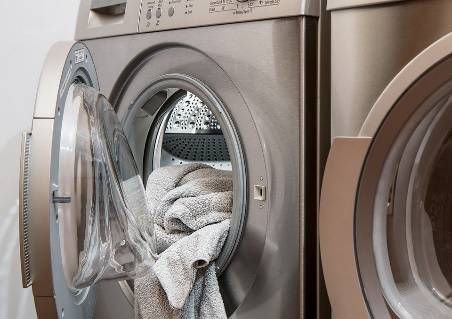
Take care of our devices to make them last longer.
Switch a battery or a screen alone or get help from volunteers.
It's good for the planet and our wallet ! The Internet offers us considerable facilities. We have easy access to tutorials and sites providing many tips:
Spare parts: Fr.ifixit.com, Sosav.fr, Brico-phone.com.
Volunteers: Repaircafe.org
Do not throw the clothes away , rather than get rid of them we can repair them. Change a zipper, patch thanks to a tutorial on the Internet. Nothing's easier !
Choosing brands that are committed , the Clear Fashion application analyzes the commitments, particularly in terms of environmental protection, of more than 70 clothing brands, and assigns them a score out of 100. To find out, just scan a label with your smartphone.
It is a means of pressure that we can put on textile manufacturers to pollute less.
The textile industry is the 5th largest emitter of greenhouse gases.
Recycle your refrigerator and other devices that contain refrigerants that have an impact on global warming, 1,000 to 9,000 times greater than that of CO2 !! Sites like Eco-systemes.fr , give a second life to your equipment.
Recycle our cell phones; those who sleep in our drawers! It is an untapped component resource. Even broken they are usable.
Buy second-hand, resell or donate , furniture, appliances, multimedia, clothing, travel items. A way to earn money by recycling and save it , to have fun at low prices thanks to a growing number of sites and garage sales.
Let's circulate what we no longer use - the second hand market is exploding !!
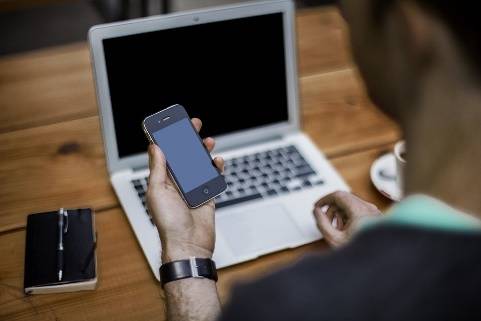
Buy refurbished equipment , used smartphones or computers, which have been checked for condition and which are sold much cheaper than new ones with a warranty of at least six months. Sites like us help us make our choices (la-boutique.com; backmarket.fr; Rebuy.fr; ...).
The Dutch company Fairphone , manufactures smartphones that are more sustainable, fairer, more responsible and as ecological as possible by using recyclable raw materials, minerals from fair trade. These devices are removable and repairable.
We thus limit toxic substances, deforestation , extraction of raw materials, greenhouse gases.
RENT, LEND - SERVICE EXCHANGE
Rent your DIY equipment, our clothes, a tent, a car; exchange good practices with a neighbor, a friend; lend to a member of his family ... so many tips not to buy new that will perhaps only be used 10 times. Sites are popping up to help us find what we need.
For clothing: Lescachotieres; Lecloset ...
Between neighbors: Kiwiiz; Allovoisins; I-praise-everything ...
MOVE DIFFERENTLY
Take public transport as soon as possible: metro, tram, bus. It's faster, less polluting, less dangerous in terms of road accidents.
Using carpooling , let's no longer travel alone. Many of us go to the same places. Thank you blablacar ...
Change car , let's opt for the most ecological car and the most suited to our needs.
Optimizing your driving saves 20% on average in fuel. Let's start slowly, limit our speed to 120 km / h on the highway, stop the engine in a queue, check the tire pressure, open our windows and limit the use of air conditioning.
Prioritize the train rather than the plane it is 10 times less CO2 emitted. Let's take the time to read or to move forward in our work, or to simply ask yourself, when possible.
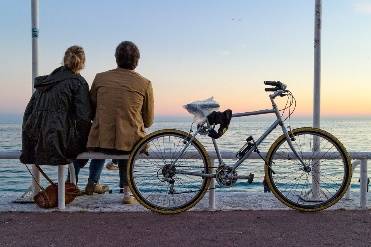
Walk as much as we can, it's good for morale and we decrease the risk of cardiovascular disease. Let's go on foot for short distances and during vacations.
Taking your bike allows you to move faster than by car over short distances by favoring cycle paths and limits traffic jams. Cycling does not pollute, in addition to being pleasant, it is good for your health. Another source of savings!
EAT DIFFERENTLY
Buy local, seasonal, preferring short circuits and bulk products . These allow us to limit our packaging . Let's look around our area for structures that promote local agriculture and that do not use pesticides. Often these products are cheaper and much better for health and the environment. We have everything to gain.
Eat organic . We categorically reject pesticides, GMOs, additives (colorants, flavor enhancers, etc.), and processed products
Thus we preserve our soils, our water tables, our rivers and our health.
Eat seaweed which is rich in fiber and protein in addition to being ecological and natural. They consume little water, do not impoverish the soil and store CO2. This food more and more present on our shelves is good for health.
Limit food waste . Each year we throw away tons of still edible food because we do not always understand the Best before Date (DLC) or the Minimum Durability Date (DDM) depending on the food. Very clear sites explain to us what it is. Let's buy in less quantity to avoid throwing away, it's good for the wallet and for the planet.
At each stage of the food chain, food is thrown away. Traders agree to sell food at low prices for which the DLC is very short or even up to date. Some bakers sell us their products from the day before at - 50% of their price.
Grow your own vegetables or fruit on your balcony or in the garden, it is possible, fun, better for you and biodiversity but also more economical.
Raising chickens , what could be nicer than having fresh eggs and recycling our organic waste.
Cooking our own dishes allows us to save money, to have a much healthier diet and to share special moments with our children for the preparation of cakes, for example. Let's make our own yogurts ...
Let's stop consuming hidden sugar and fat , let's opt for less additives and processed products, less packaging.
Prefer a farming method that is more respectful of animals and nature . We must reduce our consumption of meat, it is too much and its excessive consumption is bad for our health.
Livestock are one of the main causes of the most pressing environmental problems , namely global warming, land degradation, air and water pollution and loss of biodiversity.
Eat vegetarian a few days a week, prefer vegetable proteins that are better for our health and our environment. Let's learn how to pair legumes with grains to get enough protein such as lentils and rice, or chickpeas and wheat. It is fundamental!
Replacing 1 kilo of meat by 1 kilo of cereals emits 5 to 10 times less greenhouse gases.
CLEAN AND MAINTAIN OTHERWISE
Make your own cleaning products . Practical, efficient, economical, better for health and ecological with very little packaging. We have everything to gain!
From multi-use cleanser to shampoo, including dishwashing liquid, toothpaste or do-it-yourself soap or opting for the solid version of deodorant or shampoo ... so many solutions to change the world.
The essentials: Water - White vinegar - Baking soda - Marseille soap - Household black soap - Soda crystals - Microfiber - Honey - Coconut oil - Essential oil.
Many household products have been classified as dangerous for health and the environment according to the results of a survey conducted by “60 million consumers” released on 07/28/2019.
Many sites explain how to make your own products, such as ecoconso.be or econo-ecolo.org
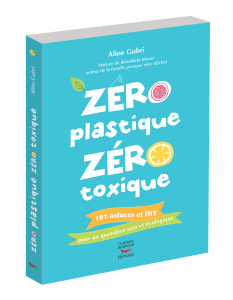
BANNING ANY FORM OF PLASTICS
Favor bulk , let's use a shopping bag to replace our plastic pockets and a few fabric bags for our grocery products such as cereals, pasta, cookies… let's reuse our packaging to fill them with detergents or other liquids. Our household waste will thus be greatly reduced.
Let's replace the food- grade plastic wrap with washable fabrics or multi-purpose lids. Choose bamboo toothbrushes or disposable cardboard tableware or even wooden clothespins ...
Let's eliminate the straws in our glasses and the plastic sheets that surround our flowers to offer or our clothes to the dry cleaners. Choose our cheeses and cut meats.
Let's use a stainless steel gourd, jars and glass storage boxes.
Let's invest in a water purifier if we don't trust tap water to dispose of plastic bottles. Did you know that to make 1 plastic bottle of 1 liter, you need 100 milliliters of petroleum, 80 grams of coal, 42 liters of gas + 2 liters of water.
Every year, thousands of tons of plastic end up in nature and in the oceans when we just need to change our behavior.
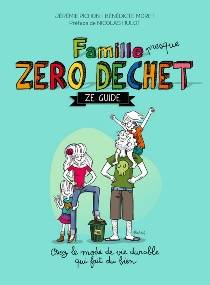
SORT WASTE & DON'T THROW OUT OF BINS
These are ecological gestures that allow us to contribute to the preservation of our planet.
Sorting allows us in particular to be able to reuse unnecessary resources that would end up burnt or in nature and avoids us looking in the raw materials that are in our basements.
It is simply a process of treating waste which is then used in the design of a new product.
- metal, - batteries,
- plastic, - clothing,
- paper and cardboard, - lamps,
- glass, - electrical appliances,
- used drain oil, - tires,
- drugs, - ampoules, ...
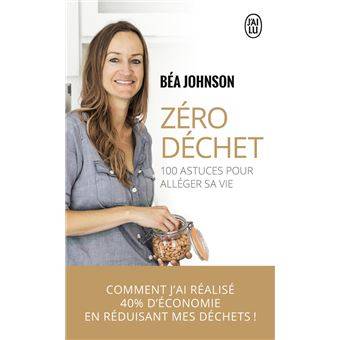
Let's become sorting professionals, still today three quarters of the contents of our bins are recyclable and should not have their place in incinerators and landfills. Sites such as Consignesdetri.fr. tell us how to sort.
Let's stop littering , no longer throw in the street, on parking lots, on our paths, near waterways, in nature, on the road through the windows of our car.
We are invaded by cigarette ends, papers, cans, and today sanitary masks!
So many careless gestures for which we are also the only ones responsible.
Let's put our waste in the trash , a breeze!
Make compost , in your apartment, in the common bin of your home or neighborhood, in your garden.
Composting reduces the weight of household waste collected, it improves soil fertility: it regenerates the land (release of nutrients over time), makes the soil more alive, retains water (less watering) , lightens clay soils, contributes to plant development, protects plants against diseases, limits daily temperature differences ... One of the best ways to obtain quality flowers, fruits and vegetables.
Compost reduces the volume of our household trash by 30%.
CHOOSE AN ECO-RESPONSIBLE BANK AND A GREEN SAVINGS
Global banks finance several projects which participate in the financing of polluting or harmful activities for the planet. Also industries and companies exploiting massively fossil fuels such as coal, oil and shale gas. The carbon footprint of banks is colossal and faced with the climate emergency, some banks are becoming aware of this state by increasing their investments in more eco-responsible companies and green and solidarity projects.
Let's change financial institution , let's opt for banks such as La Nef. This establishment, backed by the Crédit coopératif, is committed to financing exclusively social, ecological or cultural projects, and publishes the list each year.
Participate in “participatory” platforms or what is called “crowdfunding” . Let's give birth to projects that mobilize us and make us believe in a better future for the planet. These platforms are means that make it possible to raise funds, from a large public, to finance ambitious, viable and ecological projects. One of the examples we can cite is that of “The Ocean Cleanup”, an NGO that invests in ocean cleaning. It's up to you to choose the one that suits you!
Let's open a “sharing ” savings book, managed by financial institutions (Credit cooperative, Maif, etc. These booklets work like a classic savings book: the money we put in it is guaranteed and remains available at all times. The peculiarity of this booklet is that part of its interest is donated, in part or in full, to a humanitarian or ecological association, chosen from a list of partner structures (WWF, France nature environment, etc.). a reduction in taxes for donations.
Subscribe green stocks and bonds , finance projects in favor of the environment. For example for sustainable housing, which allows energy savings through the use of environmentally friendly materials. Or again, in favor of renewable energies or for the preservation of natural resources. All this within the framework of a savings plan in shares (PEA) or a life insurance for example.
Posted on 2021-04-01 16:20








Comments